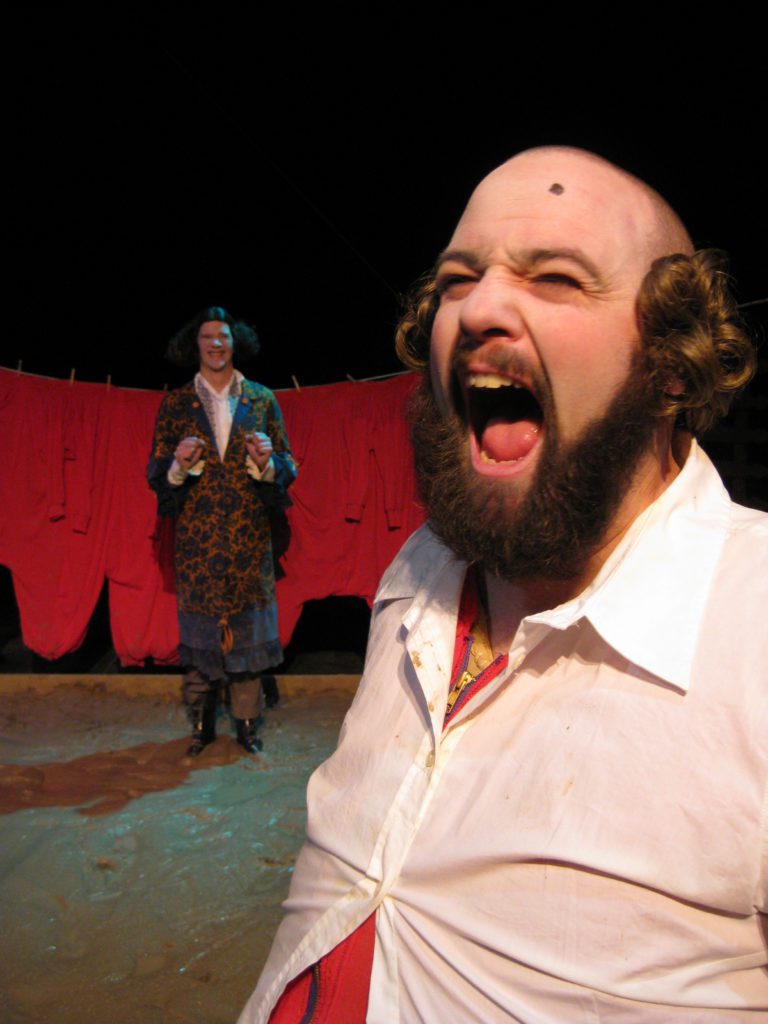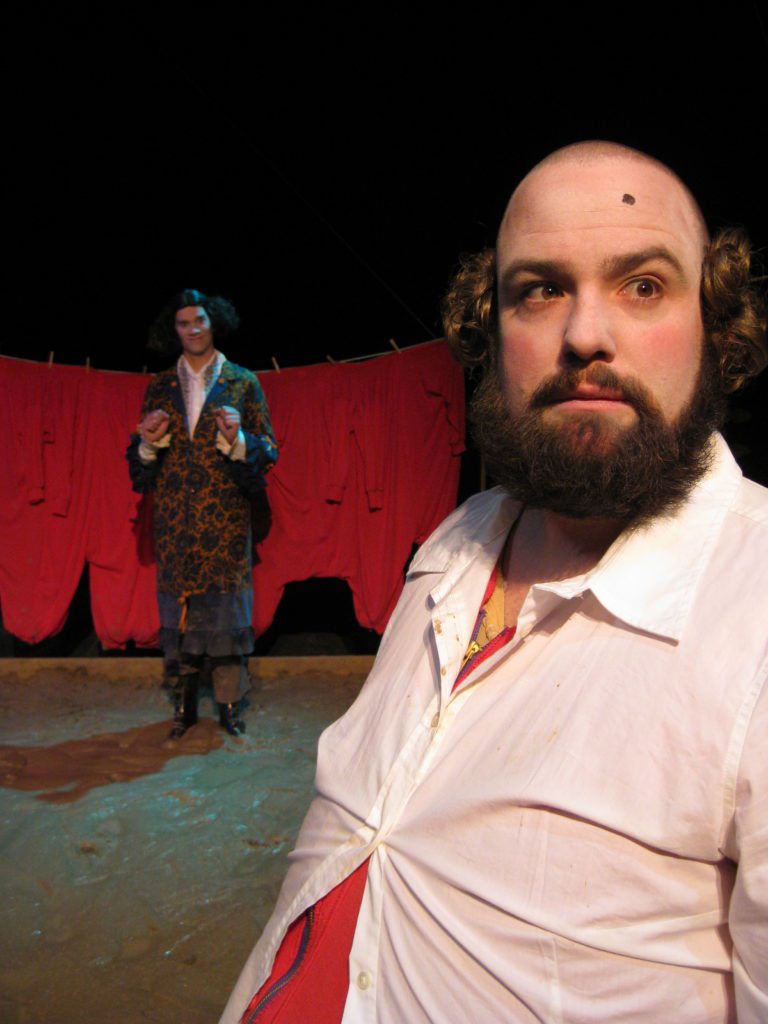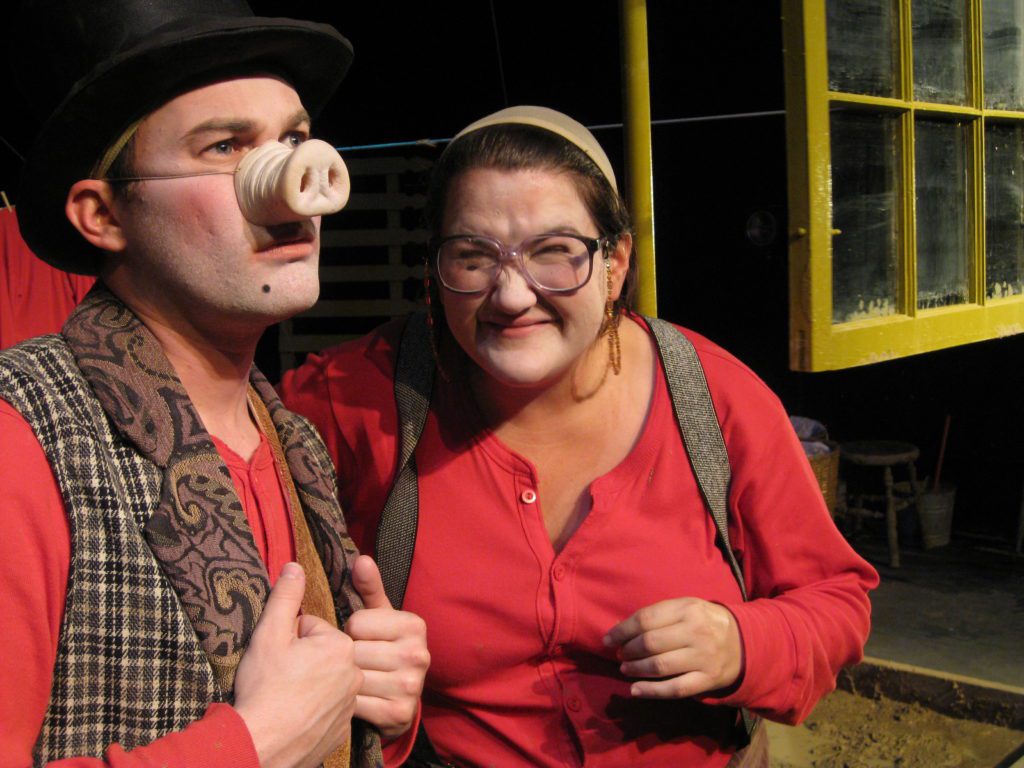Some might be a bit off-put to read that a theater company is adapting an absurd 1835 Ukrainian short story that scholars have classified as “grotesque realism.”
Don’t be frightened … It’s Buntport!
That means it’ll be inventive, accessible and, yes, even fun.
“The Squabble” typifies all the qualities that make Buntport a singular company. It unearths an obscure source story and transforms it with intelligence and affability, using mind-expanding storytelling techniques along the way.
The Buntport ensemble has told its many original stories on fake ice, suspended above the stage and even upside down …
“The Squabble” is performed in a 12-foot-by-19-foot mud pit.
Yep, 5 cubic yards of wet, sloppy mud. Sure, it’s a gimmick – with a purpose. Just hearing the players trudge through their trough creates sounds that add real, visceral pleasure to the tale.
“The Squabble” is based on Nikolai Gogol’s fable, “The Tale of How Ivan Ivanovich Quarreled with Ivan Nikiforovich.” Our setting is a village called “World Town” – think of it as Ukraine’s “Our Town.”
Gogol wrote bizarre tales, like the one about a nose that detaches itself from a soldier’s face, intent on living an independent life. Here, he gives us villagers who are content to live in what they call “a magnificent puddle.”
World Town, populated with names like Wanda Wickerstickly, is a harmonious place with no theft or acrimony. That is, until a great friendship between two neighbors is torn asunder when one casually calls the other a “goose.” This innocuous epithet builds, like the butterfly effect, into a sad storm of acrimony that draws the whole town into their down and dirty mess.
Bob Boxinoxingworth (Erik Edborg) and Bob Luggalollinstop (Brian Colonna) are opposite halves of a whole. One’s lanky, clean and proper. The other’s rotund, blunt and kind of gross.
Their tale is told in Brechtian style, so our narrator (a well-spoken pig played by Evan Weissman) and other ensemble characters (played by Hannah Duggan and Erin Rollman) watch along with us in plain view with props and costumes.
The mud pit is more than a visual and auditory novelty. But don’t come looking for wrestling. It’s not a playpen, but a character unto itself.
This is not terribly deep terrain (the pit or the story), but it’s always a pleasure to sit back and watch what grows whenever Buntport simply … adds water.
Here we meet endearingly bizarre characters like Duggan’s Monty Python-worthy judge, Alfred Fredfredfredful. We see Wanda dronishly pin dirty rags to clotheslines hung along both rows of seats, furthering the idea that life here is simply impossible to keep clean.
Still, chins are up.
You won’t understand everything Buntport puts before you. (Who ever does?) But when you combine these delightfully feuding neighbors with the players’ whimsical storytelling style and there’s just something very “Fantasticks” about the whole, brief evening.
And fantastic.
-John Moore, May 22, 2009, Denver Post


